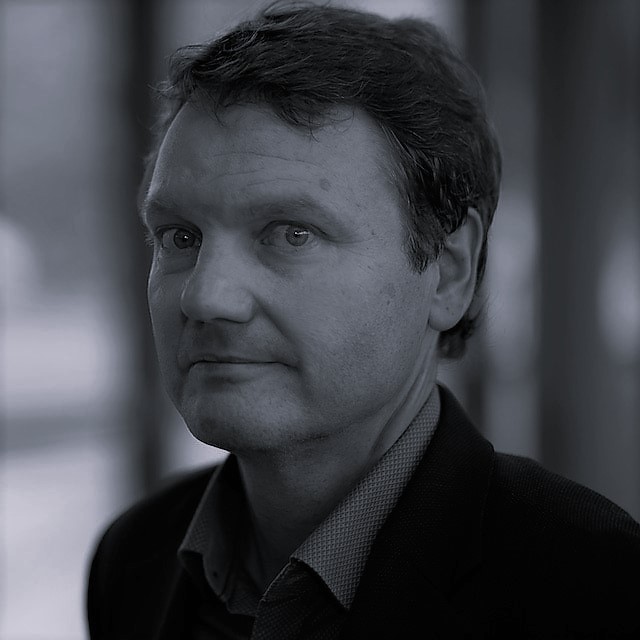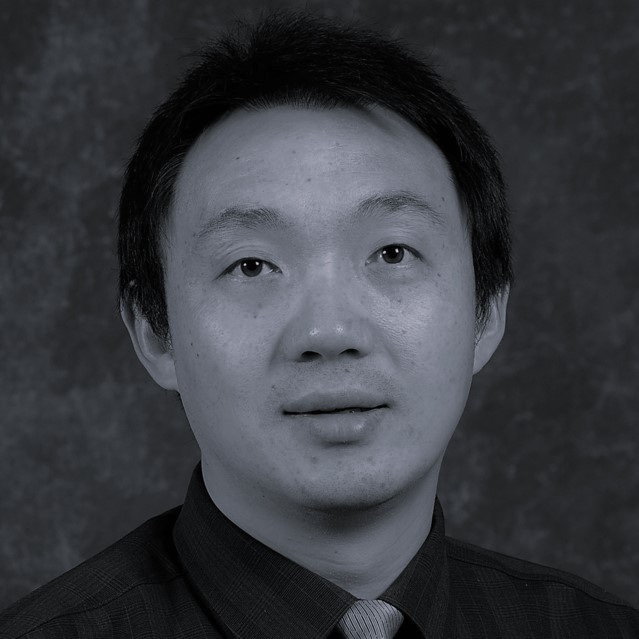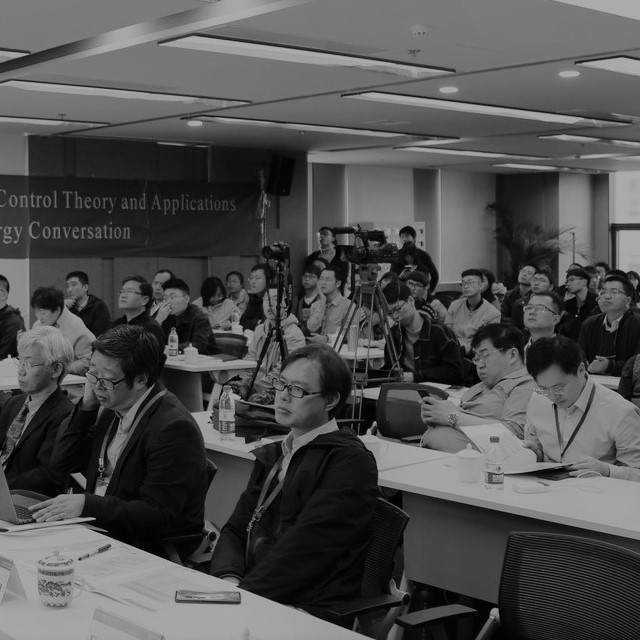- Fusion of classical and contemporary themes.
- Symbiosis of theoretical, computational and practical aspects.
- Blocks of lectures delivered by internationally leading experts.
- Fostering academic collaborations and professional networking.
- Free registration.
- (Early registration is encouraged due to places limitations.)
-

Lars Grüne
Deterministic and Economic MPC
This part of the course deals with the analysis of deterministic MPC schemes with either stabilizing or economic cost functions. Particularly, we will consider stability and performance estimates of the closed loop for MPC schemes with and without terminal conditions. We will show that a particular dissipativity condition and the concept of turnpikes for optimal control problems are pivotal for MPC to produce stable and near optimal trajectories.

Gabriele Pannocchia
State Estimation and System Identification for MPC
This block of lectures is divided into two main parts. In the first one, the theory and practice of state estimation will be discussed within the context of MPC, covering firstly linear systems (Luenberger observers, steady-state and time varying Kalman filters) and nonlinear systems (extended Kalman filters and moving horizon estimators). Particular attention will be payed to joint state and disturbance estimation that is commonly used in MPC design to compensate for plant/model mismatch and unmeasured disturbances. In the second part, systems identification methodologies to build linear (transfer function and state-space) models from plant data will be discussed. This part will cover both prediction error and subspace identification algorithms, as well as input design methods (univariate-multivariate open-loop, closed-loop), hence presenting a comprehensive overview of all steps of a typical MPC design project for process control applications.
-

Sebastien Gros
Optimization and Learning for MPC
This part covers two aspects of MPC. First, numerical approaches for MPC and second learning-based MPC. In the first part, we will discuss how optimization problems based on classic physical models can be converted into optimization problems, and how optimization problems are solved numerically in the computer. This part will take use into KKT conditions, Newton methods, interior-point methods and sequential quadratic programming. In the second part, we will discuss recent results in learning in the MPC context. We will briefly unpack some approaches recently presented in the literature, including Machine Learning in MPC and model-free MPC, and then focus on a family of method combining Reinforcement Learning with MPC to generate optimal policies using techniques from MPC.

Eric Kerrigan
Numerical Methods for Embedded Processors
This block of lectures will look at some practical challenges when implementing model predictive control on embedded processors typically encountered in applications, such as those with fixed-point or low-precision floating-point arithmetic units. The lectures will present some solutions for implementing second-order and first-order derivative-based optimization methods, as well as derivative-free optimization algorithms, on these processors. We will also outline how field-programmable gate arrays (FPGAs) could be used to design custom parallel processor architectures to trade off silicon usage against computational accuracy, energy, and latency.
-

Saša Raković
Tube MPC
This part focuses on exact MPC under uncertainty and, motivated by its computational intractability, it highlights importance of careful use of parametrized control policies in order to computationally simplify the exact robust MPC whilst preserving as many of its strong structural properties as possible. A particular emphasis is given to tube MPC framework that addresses effectively the fundamental challenge of reaching a meaningful compromise between the quality of guaranteed structural properties and the associated computational complexity. This part also builds upon generic introduction to tube MPC by providing an overview (in terms of theory and design aspects for) of basic and advanced tube MPC design methods, namely rigid, homothetic and parameterized tube MPC synthesis.

Marco Campi
Scenario-based and Data Driven MPC
In many control problems, disturbances are a fundamental ingredient and in stochastic Model Predictive Control (MPC) they can be accounted for by incorporating probabilistic constraints where constraint violation is tolerated provided that the probability of this to happen is kept small enough. This perspective results in so-called chance-constrained optimization, which is known for being very hard to deal with in practice. In this section of the course, we describe schemes to approximately solve stochastic MPC using the scenario approach where the probabilistic constraints are replaced by a finite number of specific cases, each one corresponding to a realization of the disturbances. Considering a finite sample makes the problem computationally tractable while deviating only slightly from the original chance-constrained problem, as established by a rigorous theory. Moreover, this approach requires no restrictive assumptions on the nature of the disturbances, such as boundedness, independence or Gaussianity. Besides being in force to deal with computational problems, the scenario approach represents a prominent tool in all those cases where partial knowledge on the uncertainty is available via a data set that have been collected from the environment. In the presentation, this inductive interpretation of the scenario approach will be also highlighted.
-

Ricardo Sanfelice
MPC for Hybrid Dynamical Systems
Hybrid systems model the behavior of dynamical systems where the states can evolve continuously as well as instantaneously. Such systems arise when hybrid control algorithms - algorithms which involve logic, timers, clocks, and other digital devices - are applied to continuous-time systems, or due to the intrinsic dynamics (e.g., mechanical systems with impacts and switching electrical circuits). Hybrid control may be used for improved performance and robustness properties compared to conventional control, and hybrid dynamics may be unavoidable due to the interplay between digital and analog components of a system. This block of lectures provides a brief yet complete exposition to the analysis and design of model predictive control (MPC) algorithms for hybrid dynamical systems. The block of lectures is divided in two parts. The first part presents an overview of the literature and state-of-the-art on hybrid MPC, and provides a short tutorial on a powerful hybrid modeling framework that encapsulates switched systems, hybrid automata, impulsive systems, and many other class of systems. Details can be found in the following textbooks: R. Goebel, R. G. Sanfelice, and A.R. Teel, "Hybrid dynamical systems", Princeton University Press, 2012. and R. G. Sanfelice “Hybrid feedback control”, Princeton University Press, 2021. Key analysis tools corresponding to this framework, along with several advantages over other hybrid frameworks are demonstrated. This necessary background is then used to lay the theoretical foundations of a general MPC framework for hybrid dynamical systems, with guaranteed stability and feasibility. The ideas are illustrated in several applications, including networked systems, mechanical systems with impacts, power systems, and autonomous vehicles. The second part presents several synthesis and analysis tools arising in the aforementioned hybrid systems framework, as they pertain to the MPC problem. It also presents a computationally tractable counterpart of the MPC framework in the first part. This particular MPC scheme relies on the time-discretization of the underlying continuous-time dynamics. Feasibility and stability properties of the nondiscretized hybrid MPC algorithm presented in the first part are extended to the discretized case. Computational methods to solve the optimal control problem, such as mixed integer nonlinear programming, are presented. As the discretization of hybrid dynamical systems is a nontrivial problem, appropriate discretization techniques are demonstrated. Applications are revisited. The block of lectures concludes with an in-depth discussion on open problems.

Karl Johansson
Receding Horizon Control Under Temporal Logic Constraints
Model predictive control has been shown to be a successful technique to incorporate state and input constraints into the control synthesis problem. In these lectures, we will discuss how more complex constraints can be incorporated based on temporal logic from computer science. We consider both the problem of how to verify that a system fulfills a given specification and the problem of how to synthesize a controller that guarantees such property. We will introduce the new notion of temporal logic trees. It will be shown how classical reachability analysis can be used to construct such trees and how they can be used to solve the verification and control problems. The proposed methods are demonstrated in applications of automated vehicles and shared autonomy systems.
-

Li Dai
Distributed MPC
Distributed model predictive control (DMPC) is a further development of MPC technique for large-scale systems and has been widely used in chemical plants, electricity networks, road-traffic networks, etc. Compared with traditional centralized control approaches, DMPC approaches have important advantages that justify their use, i.e., reliability, scalability, and privacy protection. In this module we will focus on some fundamental results on DMPC by promoting the current MPC technique to the distributed case. The main ideas of coordination between distributed decisions will be discussed to ensure coupled constraint satisfaction and good control performance of the entire system.


Yugeng Xi and Shu Lin
MPC for Urban Traffic Control and Optimization
Today traffic congestion in big cities is a serious problem of our society which affects the human’s daily life. To improve the mobility and reduce the emissions, it is important to develop efficient control and optimization methods and strategies for traffic networks. MPC is an advanced control methodology that seems excellent in process industry due to its ability of model based optimization and constraint handling. With the development of traffic control from intersection control to network optimization, it is naturally expected that MPC can be taken as a suitable tool for urban traffic control and optimization. However, urban traffic network is a typical large scale complex system with high dimension, random variation and large uncertainty, which brings new challenges for MPC application. The critical issues when applying MPC to urban traffic network are how to establish suitable prediction model and develop efficient optimization method, and how to borrow the useful structures and strategies in large scale system theory. In this lecture, we will give an introduction on MPC applications in urban traffic network which is part of our research in the past ten years. The content of this lecture is organized as follows: 1) Fundamentals: MPC - A powerful technology for control and optimization; 2) Model predictive control for traffic networks; 3) Hierarchical MPC for global urban traffic network. The first part will introduce the expansion of MPC applications since this century, and explain the basic principles and design framework of MPC that are going to be used in urban traffic network control and optimization. The following two parts will introduce the MPC applications in urban traffic networks, where both deterministic and stochastic modeling and optimization will be involved, and a multi-layer hierarchical structure for control and optimization of large-scale traffic networks will be introduced. The lecture aims at introducing the fundamental issues of applying MPC methodology to large-scale complex networks, especially the urban traffic networks. The audients will have a whole understanding of the MPC methods and algorithms to solve the control and optimization problems for large-scale complex networks, with concrete application examples for urban traffic networks.
-

Yang Shi
A Robust Model Predictive Control Framework for Autonomous Intelligent Mechatronic Systems
Networked and distributed control for mechatronic systems have received great attention in the control community due to its wide application areas. Network-induced limitations may be caused by the presence of a communication channel, or because of the efficient assignment of power and other limited resources. Autonomous intelligent mechatronic systems (AIMS) represent a large class of smart systems that encompass computational (i.e., hardware and software) and physical components, seamlessly integrated and closely interacting to autonomously sense and manipulate the changing state of the physical system. These systems involve a high degree of complexity at numerous spatial and temporal scales and highly networked communications integrating computational and physical components. Model predictive control (MPC) is a promising paradigm for high-performance and cost-effective control of networked and distributed mechatronic systems. These lectures will firstly summarize the major application requirements and challenges to tackle and innovate in designing, implementing, deploying and operating AIMS. Further, the robust MPC and distributed MPC design methods will be presented. Finally, the application of MPC algorithms to AIMS will be illustrated. In order to help the students better understand the MPC theory and applications, the skeleton of the theoretical analysis and proof will be elaborated, the key steps of derivations will be analyzed in detail, and the simulation studies will be presented.

Panel
Q&A and Closing Sessions